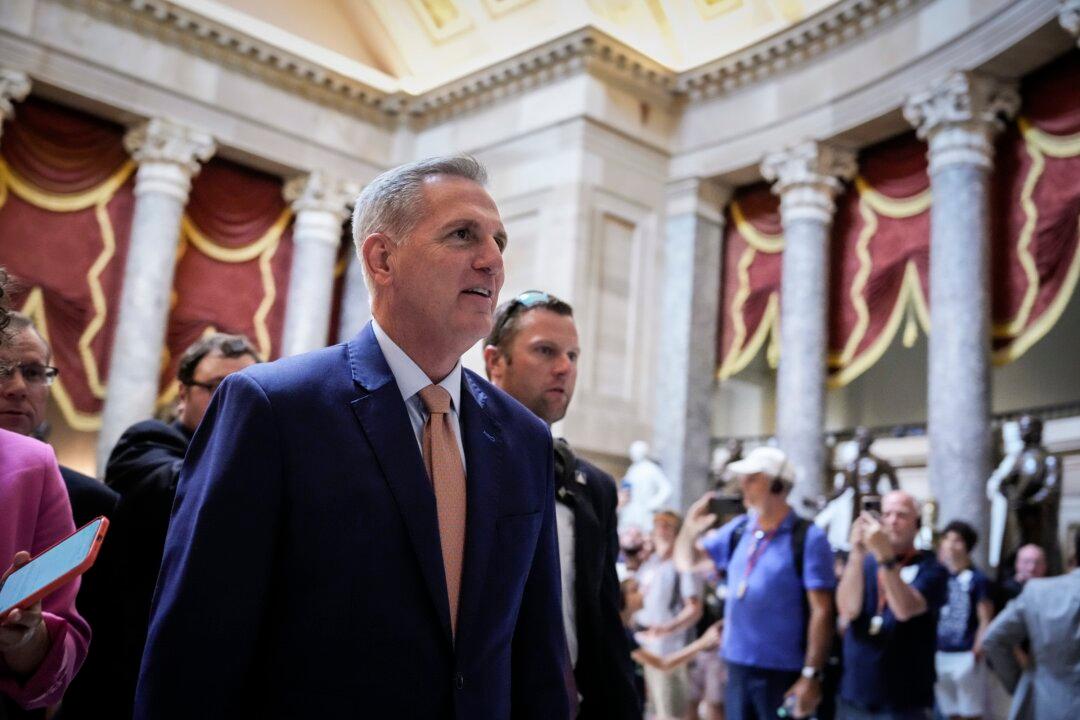House Speaker Kevin McCarthy (R-Calif.) departed Washington for the summer recess, leaving a pair of vexing problems to ripen on his desk. When the speaker returns next week, he’ll find both issues right where he left them but six weeks closer to an expiration date.
McCarthy will have only a dozen legislative days to avoid a government shutdown when the House resumes business on Sept. 12.





